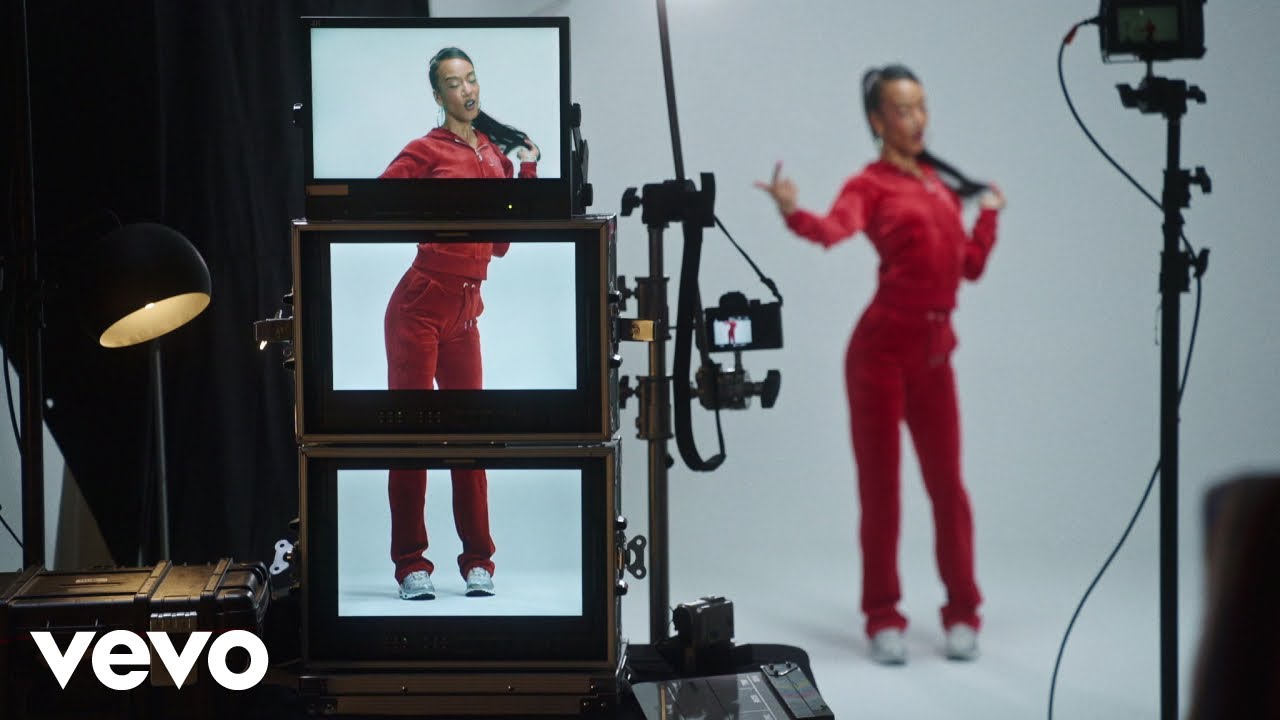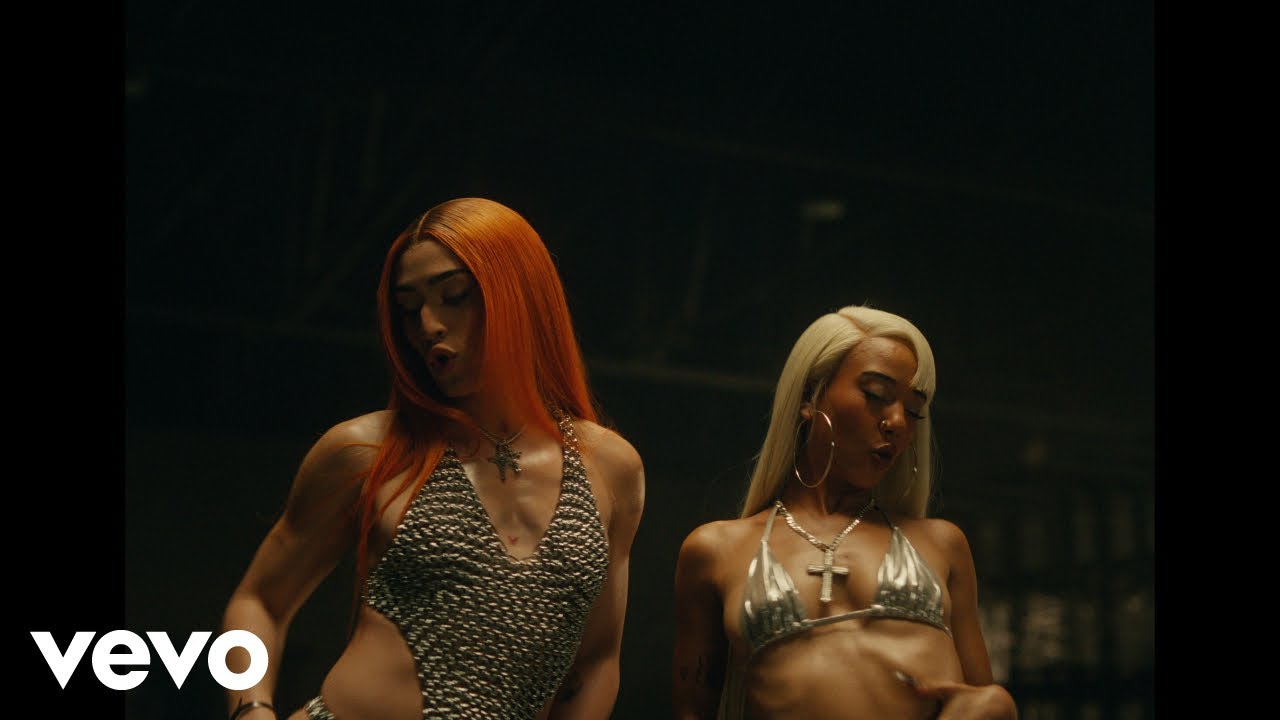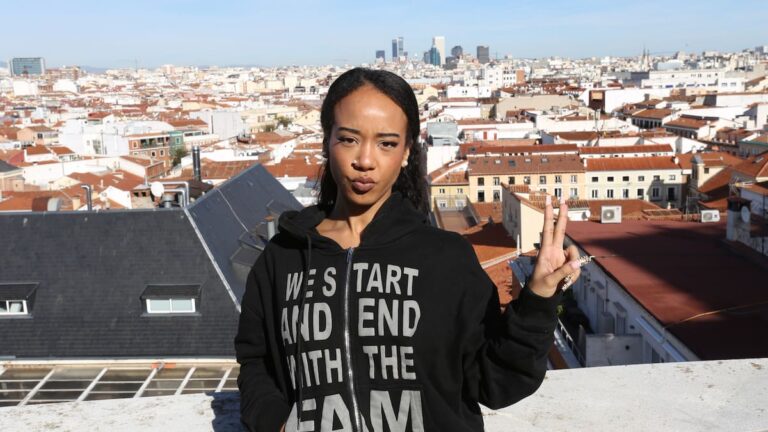Thanks to digital platforms, accessing any artist is an easy task. But finding a place in the industry is the challenge everyone faces. In the case of LaBlackie She has managed to create a community of fans that have made her an undisputed promise of the drill scene in our country. songs like Seaquake with Antillean Villain and Spanish Pound Town with Ms Nina they have accompanied thousands of people in their daily lives.
Now many eyes have focused on her to discover more about her talent. And the release of his album The Favorite It has served as a global letter of introduction. At WECB Urban we chatted with her about her beginnings in the industry, the challenges she has faced and more. Find out:
Question (P): Let's start at the beginning. LaBlackie, what first memories do you have with music in general in your life?
Join the whatsapp channel by WECB
Answer (R): For me, let's see, they actually played music for me when I was little because I had a lot of energy. To calm me down, they painted the walls of my room green because they said the color relaxes, and they played me a lot of classical music. I have memories of listening to music also from my aunt's cassettes. In my house we have always listened to a lot of music, from the previous generation, with my aunt, my mother, you know? So I think that has already happened to my generation and they have always played music for me. That was my first memory.
Q: Do you remember the moment when you began to be interested in her?
A: I think I have always liked music, that is, even classical music. I liked everything about transmitting. So, for my part, I think that also when looking for references in music, when I found Rihanna, Beyoncé, people who looked a little like me, I clung to that. Also at school parties they played electro-latin and these styles of music. Sean Paul… That sound like dancehall. Since I was little, I was beginning to be interested in school parties because they were things I could dance to.
Q: Did you know from the beginning that you were going to dedicate yourself to music?
A: Well, I have always been clear that I did want to do some creation, some creativity. About exposure too, what do I know, I have wanted to be a singer, I have wanted to be a model, I have wanted to be… I don't know, things like that they would make me travel, that they would make me able to live a life being me, you know? Like, my body, my talent, my voice, whatever. Yes, I have been clear about that.
LaBlackie on the terrace of the Prisa Radio building / Marta Córdoba Aparicio
LaBlackie on the terrace of the Prisa Radio building / Marta Córdoba Aparicio
Q: What happened in your life that made you definitely lean towards music?
A: At 17 years old I was not studying or working. I didn't know what to do much with my life. Then I began to see that in 2016-2017 freestyle was very fashionable in the streets, but what I saw was in the United States. There were trends in which a group of friends would get in the car, play the bases of other people's songs, for example, without lyrics or anything, and they would start rapping, doing their freestyle there in the cars. Then I saw that fashion and I liked it a lot. And since there were also many women participating, men were usually always seen. So I said, wow, well I like it. And I tried to do my thing.
Q: What artists have inspired you to create your project as an artist?
A: I always say the same person, but Nicki, that's like my number one reference, Nicki Minaj. Then Lil Wayne too. In terms of writing, people from the United States: Nicki Minaj, Lil Wayne, Tyga, Lil Kim… And then, in terms of flows, reggaeton has also influenced me a lot, Cosculluela, Arcángel… Arcángel I think is the person I care for the most. A lot of people comment to me on YouTube like, 'You have the flow of Arcángel. I like it a lot'.
At first I didn't even want people to know from my face or anything.
— LaBlackie
Q: How do you remember your first steps in the industry at a professional level?
A: The first song was in 2019 and I released it on a channel other than mine. Even I didn't want people to know too much, to relate too much to me. Then I released it on a foreign channel and that in itself made numbers. I mean, well, it reached 5,000 views or so, which for the first song is quite a bit, you know? And from there, as I saw that people liked it, I said, 'okay, well, I'm going to make my channel to upload more things.' And I made my own channel two years later, no, well, the following year, in 2020. And from there, little by little people have been contacting me and I think that the numbers have also been coming from these people. I've also been lucky with the people I've worked with. I started with Flavio Rodríguez and Edmond to make an EP called Pretty Bitchwhich I released in 2022, and as a result of working with them I have also had many more opportunities. So I have been able to grow more.
Q. Why did you initially want to keep your identity hidden? Did it make you a little dizzy?
A: Yes, yes. Today, that is, because I'm already doing well and people like it and well look, I jumped into the pool and it went well. But at first I didn't want to know… I didn't even want people to know from my face or anything. I was very embarrassed and that's why I didn't create my channel. I uploaded that song, the first song, on the producer's channel. The producer already had his videos and everything and I said come on, put mine in there and see if it goes well.
Q: Your lyrics are explicit. Has this become an obstacle?
A: No, I think it has been more the other way around, because as it has always been men who spoke openly and who had more language and more explicit songs and sounds, the masculine image has always been closely related to this type of rhythms and this language. I believe that, furthermore, in Spain, where trap arrived super late, it did so on the male side. There were also Miss Nina, La Zowi… So I think that has been more of an advantage than a disadvantage.
Q: The influence of sexy drill is also noticeable in your songs. It is a subgenre that is not heard much in our country. How do you start to be interested in him?
A: At the end of the day, everything I usually do is because I have seen it before elsewhere. And in this case, in the United States it also became very popular with Ice Spice, for example. And I said, 'okay, well, I like it.' Sexy drill tends to have a softer, more docile voice, like taking a little more care of the beat, you know? So. And I usually destroy the beat, honestly. I usually scream, I usually go very fast. So I thought it was a new record for me and since there are producers here in Spain who also pipean a lot and they listen to what's out there outside of Spain… I think I was given the opportunity, both by Edmond and Flavio, who are the two producers with whom I made the entire album, and then by Bigla, with whom I have also worked. with him on this album. He told me that sexy drill, new jazz, these types of sounds are very fashionable, and that we could do something like that. I listened to it more until one day I had a studio session with Josh, who is the producer of this song, Sexy Drill, and he told me, 'look… I have different beats. I'm going to teach you to see which one you like the most.'

Q: Talking about your album The Favoritethere is a theme that is with Villano Antillano. How did this collaboration come about?
A: It really came about very organically. One day she followed me and from then on we were talking. Then, since I signed with Universal, we were able to set the dates when she was in Madrid so that I could come and set up dates in the studio. But it came about because she followed me one day and she wrote to me and told me that she would love to do something together. So we planned a single and then, since he was already making the album, I asked him if he minded if I kept it.

Q: With The FavoriteWhat challenges have you faced?
A: At the end of the day, before making the album I was an independent artist. He had a bit of control over everything, you know? He had the singing voice. Then, when I started making the album, as I signed, it is true that a challenge was adapting to the record company, to its times, to working with a larger team than I was used to, that there are different departments… It kind of goes with a much more advanced planning than I had before, obviously. I see that I have made the album in the same way that I have made other works. In other words, it has been reserving a studio, being there all day and seeing a little. Listen to rhythms, decide, write and that's it. And leave the studio with a new song or two or three.
Q: What is your work method like?
A: I normally work with a melody, with a base, a base that helps me. I feel that the base literally tells me what I have to say. That is, if I listen to drill, not only do I know that I have to make drill rhythms, but it depends on the drill that I listen to, I'm going to talk about how cool I am or maybe there are beats that I listen to that are drill that It's like the street is coming to me. It tells me the theme directly when I listen to it, so I need there to be a basis before writing.
Q: Are you thinking about going on stage in Spain with your new album?
A: Yes, forced, forced. Now for me it is like a new era in all aspects. I have new content. It's like the second season of what LaBlackie is. I feel like the first season had 800 episodes and now I've been working on the second. And yes, obviously I hope there is a tour with everything new. I would love to travel even outside of Spain with this album, not just stay here.
Q: What do you want to achieve in this new era?
A: I would like my name to be established in the industry. I'd like people to think of me as a super solid project, you know? And to say, 'okay, she's no longer a girl who's maybe just starting out.'






